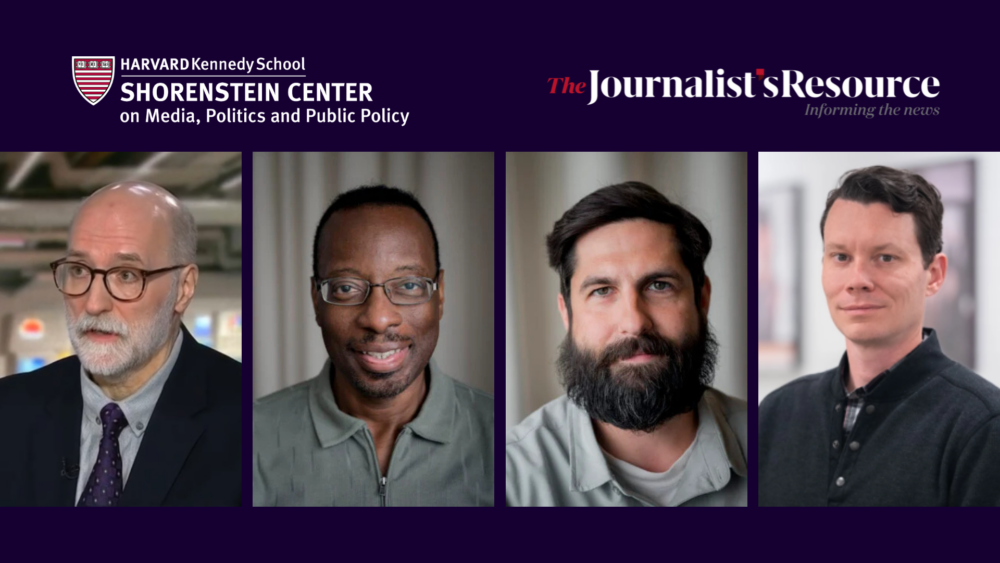
Videos
Digging into crime data to inform news coverage across beats
Research Initiatives
The news media landscape is shifting. Today’s news comes from traditional journalists, e-mail newsletter authors and independent content creators. Their processes may differ, but they all share a common challenge: making sense of complex scientific and public policy issues in a time of polarization, political unrest and limited financial resources.
Clear, evidence-based reporting is essential to help local, state, and national audiences understand the forces shaping their lives. Fortunately, the world of academia is full of scholars with deep expertise in specific policy topics. Like journalists, scholarly researchers are intensely curious and driven by society’s tough questions. Their high-quality, peer-reviewed studies can help to inform and improve news stories throughout every step of the editorial process, from pitch to publication.
The problem is that many members of the news media don’t know how to identify high-quality vs. low-quality research, don’t understand academic jargon or research methods, and don’t have time to navigate lengthy journal articles. They often don’t know how to use scientific findings to hold politicians accountable for their policy claims, and they may not realize when public officials are misusing research findings.
It has never been more important to understand how to inform the news with evidence-based research. That’s why news media makers and consumers alike rely on The Journalist’s Resource, an open-access online publication, now in its second decade, based at Harvard Kennedy School’s Shorenstein Center on Media, Politics and Public Policy.
Every week we publish research roundups and explainers on current public policy topics, articles about standout studies, informative nonfiction comics, and interactive graphics. We cover topics including economics, politics, education, legal systems, health, and the state of the media.
Additionally, we publish tip sheets to help understand academic research methods, find and recognize high-quality vs. flawed research, avoid missteps when reporting on new studies or public opinion polls, and hold the scientific community accountable. Our work helps to prevent journalists from inadvertently spreading misinformation.
We offer free online training sessions on how to use academic research in reporting, and often present at journalism conferences. Thousands of journalists from around the world have joined our webinars.
We serve as a research desk for news collaboratives, and we work regularly with other organizations that educate and train journalists. We publish under a Creative Commons license and actively encourage newsrooms and classrooms to republish our content. Many do so — including the Global Investigative Journalism Network and International Journalists’ Network, which have translated our work into multiple languages.

Videos

Videos

Videos

Program Director and Editor-in-Chief, The Journalist's Resource

Managing Editor, The Journalist's Resource

Senior Editor, Economics, The Journalist's Resource

Senior Editor, Health, The Journalist's Resource

Lombard Director of the Shorenstein Center and Edward R. Murrow Professor of the Practice of Press, Politics and Public Policy at Harvard Kennedy School

Bradlee Professor of Government and the Press
Explore more Shorenstein Center research programs.